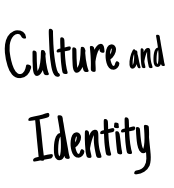|
|
|
|
This complete textbook chapter covers: 1. Different conceptions of culture, including subculture, mass culture, high and low culture, popular culture, global culture. 2. The Socialisation Process and the Role of Agencies of Socialisation. 3. Sources and Different Conceptions of the Self, Identity and Difference. 4. The Relationship of Identity to Age, Disability, Ethnicity, Gender, Nationality, Sexuality and Social Class in Contemporary Society. 5. Leisure, consumption and identity. |
|
|
This complete chapter, taken from OCR Sociology for AS (2012), explores the formation of culture in relation to a range of ideas: defining culture, types of subcultures, cultural diversity, multiculturalism, global, high, popular and consumer culture. |
|
|
This is a complete chapter, taken from OCR Sociology for AS (2012), that explores the concept of socialisation across a range of ideas: Feral children; primary and secondary; formal and informal social control; agencies of socialisation; perspectives on socialisation (Functionalist, Marxist, Feminist, Interactionist, Postmodern). |
|
|
This chapter, again from OCR Sociology for AS (2012),applies the concept of socialisation to the development of a range of social and personal identities in contemporary societies. Contents include: Consensus, Conflict and Action approaches to understanding identity; Postmodernity and the development of new identities (green, cyber and transformative); the role of agencies of identity socialisation in the development of class, age, gender and ethnic identities. |
|
|
Coverage of Consensus and Conflict- |
|
|
Looks at the problem of existence; structural and cultural universals; Ethnocentrism and cultural relativity; Reactive and independent subcultural types. |
|
|
Interactionist and Structuralist perspectives on Self- |
|
|
Exploring different sources of identity in terms of: Gender; Age; Region; Ethnicity; Social class. |
|

